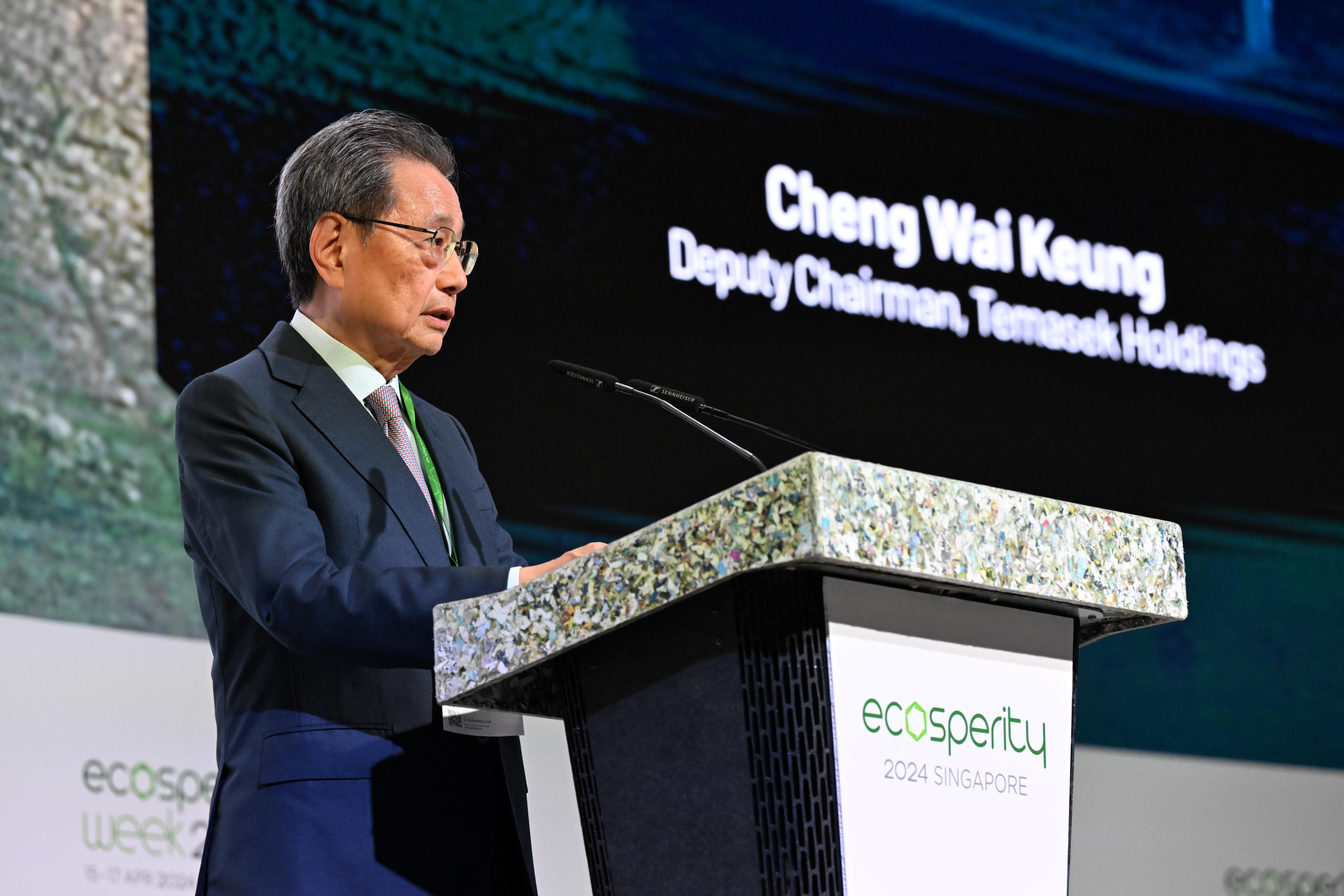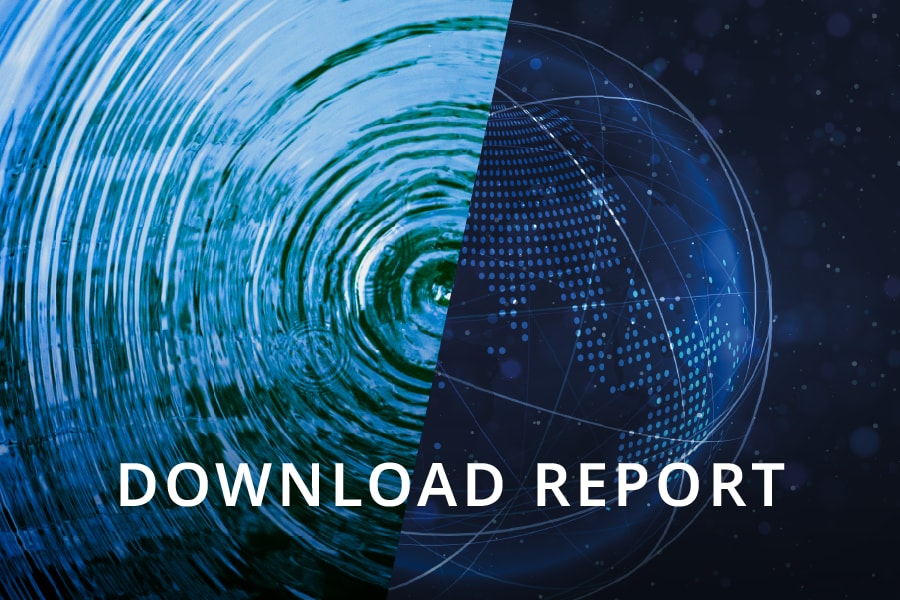Opening Address by Mr Cheng Wai Keung, Deputy Chairman of Temasek, at Ecosperity Week 2024

Mr Cheng Wai Keung, Deputy Chairman of Temasek, delivering the opening speech at Ecosperity Week 2024.
Ms Grace Fu, Minister for Sustainability and the Environment of Singapore, and Minister-in-charge of Trade Relations
Distinguished Guests,
Ladies and Gentlemen,
Introduction
Welcome to Ecosperity Week 2024. This is a special year for us, as we celebrate ten years of our journey, and coincidentally, Temasek’s 50th anniversary.
We convened the first Ecosperity Conference in 2014, during a period where the notion of sustainability started to pick up pace globally.
- It was a time when the scientific community had just sounded the alarm on greenhouse gas emissions causing an unprecedented acceleration of climate change, with the release of the Intergovernmental Panel on Climate Change’s fifth assessment report;
- a time where leaders across the world were preparing for COP21, which later delivered the historic Paris Agreement;
- and a time where the United Nations General Assembly had just set in motion 17 Sustainable Development Goals, or SDGs.
It was also a period where significant populations across Asia were climbing into the middle class and had increasing spending power. We asked ourselves – do economic growth and sustainability have to be mutually exclusive? Can our natural environment continue to flourish alongside the pursuit of prosperity for humankind? This became the basis of Ecosperity – to advocate the symbiotic twinning of Ecology and Prosperity. Planet and People.
Since then, Ecosperity has evolved. What started as a modest half-day conference has blossomed into a dynamic platform, an extensive ecosystem and launchpad of ideas and initiatives, supported by many like-minded partners who also believed in building a better world.
We could not have achieved this without you. Through your support and partnership, Ecosperity has grown in scale and stature.
Urgency of Climate and Nature action
But we cannot stop here. The effects of climate change continue to loom upon us. From recent deadly floods in California which led to the loss of many lives and homes, to extreme cold in Mongolia that wiped out over 2 million animals. We are also feeling the heat in Southeast Asia.
Singapore, for example, has experienced the warmest decade on record, and we are expecting 2024 to be even warmer than 2023. These effects are not only growing more frequent and intense, but also increasingly devastating.
Meanwhile, climate change and human activities have been wreaking havoc on species and ecosystems worldwide. This includes those on land, such as forests and grasslands but also in the ocean, such as coral reefs and mangroves.
These natural ecosystems help regulate our climate, act as carbon sinks, and are vital for the stability of the water cycle and our food systems.
These are stark reminders that we are, indeed, as what UN Secretary-General says, “living through climate collapse in real time”, and if I may add, an ecosystem collapse too.
Thankfully, not all hope is lost. In recent years, we have been seeing global consensus towards climate action. Simply look at COP28. It is the first time in history that we have ever seen such an unprecedented and near universal agreement to transition away from fossil fuels.
We are also seeing major countries such as China and India ramp up their clean energy transition, thanks to robust policies and financial support from both the public and private sectors.
For instance, China’s installed wind and solar capacity has been forecasted to surpass coal in 2024, amounting to 40 percent of China’s total installed power generation capacity. In India, installed non-fossil fuel capacity makes up nearly half of its total capacity as of early this year. Solar and wind deployment, in particular, is expected to increase by another 30 percent in 2024.
These are promising steps towards our global net zero ambition, and they show us that it is possible to change the course our world is headed to. We must keep up this stubborn optimism, and remain steadfast on this journey in collectively building a better and more sustainable future.
Renewing our Vibrant Spring
This year, we have themed Ecosperity Week, “Renewing our Vibrant Spring”. You may ask, why spring? In nature, spring is a mark of the emergence and resurgence of life. It is a season where we expect what was once dormant and seemingly withered, to be restored and new life to emerge. It is a period of vibrancy, and a time when the environment becomes favourable for growth.
In the same way, this is a clarion call for us to embrace our vibrant spring. We need to come together to seize the potential of new solutions – whether regenerative or restorative – and accelerate the green and just transition, so that both people and planet can prosper.
Conclusion
Let me conclude by painting this picture: Imagine a world where nature flourishes and humanity thrives. A world where there is balance between human needs and the biosphere; where nature supports the prosperity of humanity, and humanity supports the prosperity of nature. Can this become a reality? Perhaps, but the time to act is now.
I wish everybody a fruitful and meaningful time at Ecosperity Week.
Thank you.
